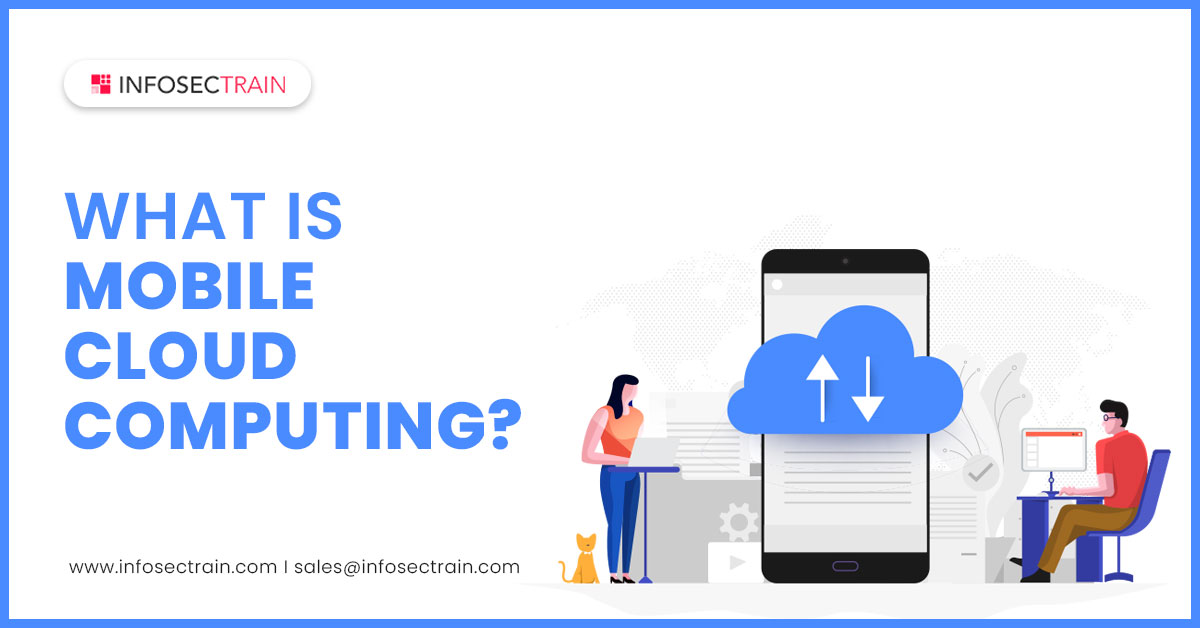What is Mobile Cloud Computing?
Mobile Cloud Computing (MCC) has received enormous focus in recent years due to the fast growth of mobile devices and the rising demand for sophisticated applications and services. It addresses the limitations of mobile devices, such as limited processing power, storage capacity, and battery life, by offloading computational and storage-intensive tasks to the cloud.

Table of Contents
What is Mobile Cloud Computing?
How does Mobile Cloud Computing Work?
Benefits of Mobile Cloud Computing
Mobile Cloud Computing Applications
What is Mobile Cloud Computing?
Mobile Cloud Computing (MCC) is a technology paradigm combining mobile devices’ capabilities and cloud computing to provide enhanced services and resources to mobile users. It employs cloud infrastructure to overcome the limitations of mobile devices, such as limited computational power, storage capacity, and battery life.
How does Mobile Cloud Computing Work?
Mobile Cloud Computing (MCC) works by integrating the capabilities of mobile devices with the resources and services provided by cloud computing. The process involves the following steps:
1. Mobile device connection: Mobile devices like smartphones or tablets connect to the cloud infrastructure via wireless networks, typically through cellular data networks or Wi-Fi connections. This establishes a communication link between the mobile device and the cloud servers.
2. Task offloading: Mobile applications running on the device identify resource-intensive tasks that can be offloaded to the cloud. These tasks can include complex computations, data processing, or storage-intensive operations. The application determines which parts of the task can be executed on the mobile device and which parts can be offloaded to the cloud.
3.Task partitioning: The application divides the task into components that can be processed locally on the mobile device and components that must be offloaded to the cloud. The device’s resources perform local processing, while cloud-bound components are sent to the cloud servers for execution.
4. Data transmission: The mobile device sends the offloaded components or data to the cloud servers for processing. This involves transmitting the data over the wireless network to the cloud infrastructure. The data may be stored in various formats, including text, images, and multimedia files.
5. Cloud processing: The cloud servers receive the offloaded components and perform the required processing or computations. The servers have access to more powerful computational resources and storage capabilities than the mobile device, enabling efficient execution of resource-intensive tasks.
6. Result retrieval: Once the cloud servers have completed the processing, they send the results back to the mobile device over the wireless network. The device receives the processed data or computations performed by the cloud.
7. Local integration: The mobile device integrates the results received from the cloud with any locally processed data or computations. This allows the mobile application to combine the local and cloud-processed components to produce the final output.
Benefits of Mobile Cloud Computing
The benefits of Mobile Cloud Computing (MCC) include:
- Increased computing power: Mobile devices can access the computational resources of the cloud, enabling them to handle complex tasks beyond their own capabilities.
- Enhanced storage capacity: Users can store and access data in the cloud, expanding their storage capabilities beyond the limitations of their devices.
- Improved performance: Offloading resource-intensive tasks to the cloud reduces the burden on mobile devices, resulting in better performance and faster response times.
- Scalability and flexibility: Cloud infrastructure allows mobile applications to scale resources based on demand, ensuring optimal performance and adaptability.
- Ubiquitous/pervasive access: Users can access data, applications, and services from any location with an internet connection across multiple devices.
- Cost efficiency: MCC eliminates the need for costly hardware upgrades, and users only pay for the resources and services they consume through the cloud’s pay-as-you-go model.
- Collaboration and synchronization: MCC enables real-time data synchronization and collaboration among users and devices, fostering efficient teamwork and data sharing.
- Energy efficiency: By offloading tasks to the cloud, MCC reduces the computational load on mobile devices, conserving battery life and improving energy efficiency.
Mobile Cloud Computing Applications
- Mobile gaming
- Multimedia streaming
- Enterprise application
- Mobile Health (mHealth):
- Location-based services
- Mobile learning
- Mobile productivity
- Social networking
- Augmented Reality (AR) and Virtual Reality (VR)
- Internet of Things (IoT)
Cloud Computing with InfosecTrain
Mobile Cloud Computing (MCC) is a rapidly expanding field that will be significant in the foreseeable future. As more people embrace mobile devices and the demand for new mobile apps increases, the need for skilled cloud computing professionals is rising.
InfosecTrain offers a comprehensive Cloud Practitioner training course designed to help individuals become proficient in leading AWS cloud platforms. This comprehensive certification training course focuses on teaching the fundamental architectural concepts of cloud computing and building the skills essential to prosper in this field.




 1800-843-7890 (India)
1800-843-7890 (India) 
